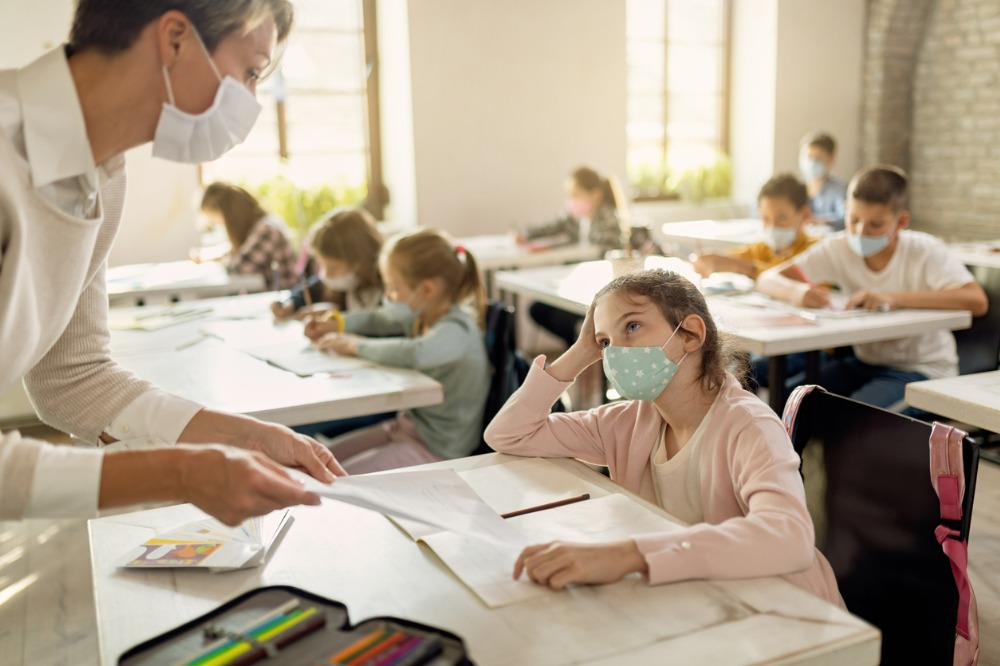
As COVID-19 infections swept through schools in Australia’s east coast, reports have also surfaced of bullying incidents involving children who contracted the virus.
In southeast Queensland, some students have reported being bullied after recovering from COVID-19 and returning to school.
One parent told ABC News that his child and another student struggled at school last week after experiencing bullying because their coronavirus diagnosis.
Larne Wellington, child psychologist and director at Positive Families Clinic in Ashgrove, has cautioned schools regarding the incidents and said they needed to take a more active role breaking down the stigma of COVID-19 infections.
“It's really important to talk to the kids and teach them that it’s nothing to be ashamed about, getting an infection,” she told ABC News. “We need to teach them that we need to give other children empathy and understanding and compassion.”
Wellington added that it was important to make sure that the issue was being discussed, “rather than keeping it all quiet.” This way, the whole school could adopt a “mindset of empathy… as opposed to turning on each other.”
Queensland’s Department of Education, however, said that it had not received any reports of bullying related to the COVID-19 outbreak.
But given the nature of bullying, this was not surprising, according to a pair of experts.
In an article published in The Conversation, Brian Moore lecturer at the School of Education at Charles Sturt University, and Stuart Woodcock, associate professor at the School of Education and Professional Studies at Griffith University, discussed the challenges of addressing this type of behaviour, and what teachers and parents can do to help.
“All types of bullying, especially indirect and social bullying, are often hidden,” the experts wrote. “As a result, bullying can be very difficult to identify and address – even more so in the case of online behaviour and cyber-bullying. This lack of visibility probably explains why the Queensland Department of Education hasn’t heard reports of bullying.”
They added that the pandemic could be a triggering factor in bullying incidents.
“Being empowered is not something we generally think about with school students,” they wrote. “The ongoing uncertainty, restrictions and lockdowns due to COVID-19 seem likely to reinforce this lack of power and control.”
The experts noted that many young people have experienced increased stress during the pandemic, making them “especially vulnerable” to mental health issues such as anxiety and depression.
“These impacts might lead to some students seeking to exert power and control by bullying other students in relation to being diagnosed with COVID-19,” they wrote. “This could be one problematic way students attempt to cope with their situation.”
However, the authors admitted that identifying the root cause of bullying can be difficult because it is a complex behaviour, which is also the reason why it can be very challenging to address.
“It often falls to teachers and schools to act on bullying that occurs both within and outside school,” they wrote. “Schools are certainly part of the solution, as they’re an important part of all students’ social world. But it should be emphasised that schools are only a part of the solution to bullying.”
“Schools can contribute to breaking down COVID-related stigma, but we need to be conscious that schools and teachers are not medical professionals, and that the stigma reflects broader community concerns. A systemic approach involving schools, medical professionals and students’ families is more likely to have a positive effect,” the experts added.
The authors suggested that schools supplement existing anti-bullying measures by reinforcing health advice that medical professionals have provided.
“This is a teachable moment, but teachers aren’t health experts, and medical professionals aren’t education experts,” they wrote. “Reinforcing official health advice will have more face value and be more difficult to dismiss.”
As for parents and caregivers, the experts said it would be helpful if they talk to the child about bullying and normalise their concerns about COVID-19.
“As with schools, there is a need to reinforce the health advice from medical professionals,” they wrote. “Look after your child’s basic mental health – like sleep, diet, and physical activity – and seek help if you need to.”


